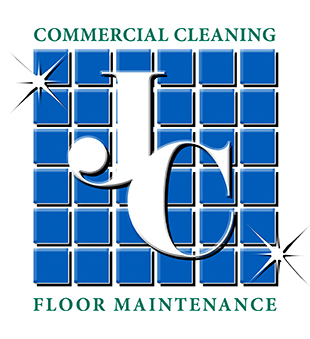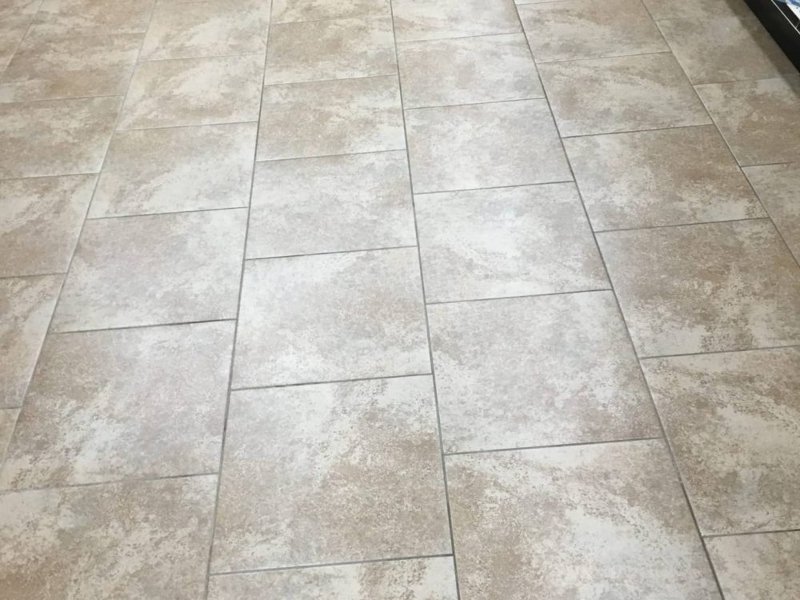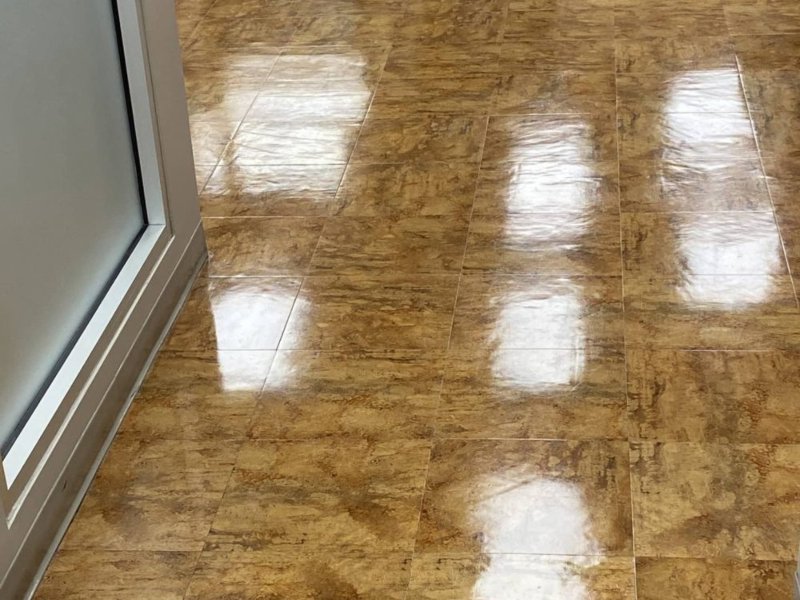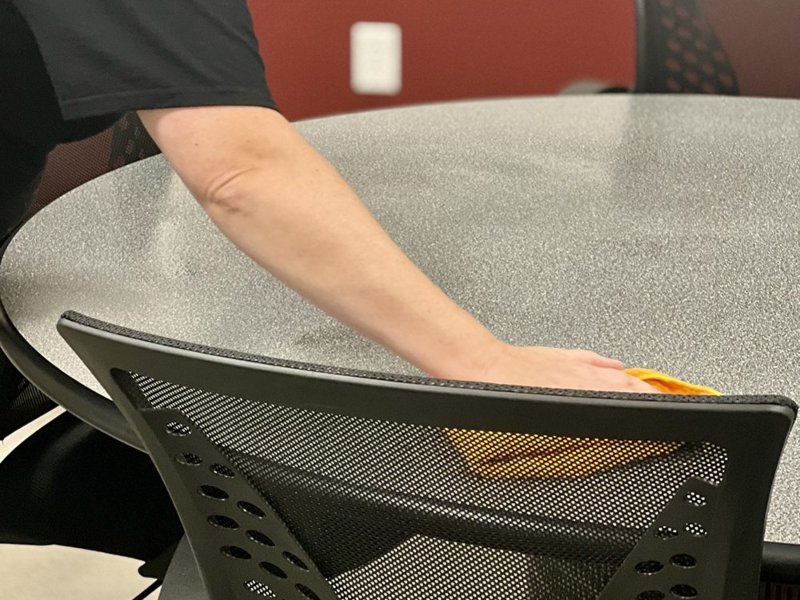Tile and grout are popular flooring choices for many commercial spaces due to their durability, aesthetic appeal, and ease of cleaning. However, to keep them looking their best, regular maintenance is essential. Business owners often debate between a routine cleaning schedule and occasional deep cleanings. While each approach has merits, regular maintenance generally provides better long-term results and offers several practical and financial benefits over relying on one-time deep cleanings.
Here’s a closer look at why regular maintenance is the better choice, what it involves, and how it compares to one-time deep cleaning.
Understanding the Nature of Tile and Grout in Commercial Spaces
Tile is highly durable and can withstand heavy foot traffic, making it ideal for busy commercial settings. However, the grout between tiles is more porous and prone to absorbing dirt, moisture, and stains. Over time, grime builds up on both tile and grout, leading to discoloration, an increase in bacterial growth, and a less appealing appearance.
The challenge with commercial spaces is the sheer traffic and exposure to various spills and stains. For example, restaurants may see a buildup of grease, while healthcare facilities may have stringent requirements for cleanliness. Each type of business needs to consider its unique requirements when choosing between regular maintenance and one-time deep cleaning.
What Is Involved in Regular Maintenance?
Regular maintenance for tile and grout typically involves the following:
- Routine Sweeping and Mopping: This removes surface dirt and dust and prevents it from being ground into the grout.
- Using Suitable Cleaning Agents: Choosing the right cleaning solutions helps prevent residue buildup and is gentle on grout, which can erode if harsh chemicals are used too frequently.
- Scheduled Low-Intensity Scrubbing: This can be done weekly or biweekly, depending on foot traffic and exposure to spills, and it removes buildup before it has a chance to become embedded.
- Sealing the Grout: Periodic grout sealing helps protect against stains and makes regular cleaning more effective, keeping the grout in good condition longer.
Benefits of Regular Maintenance:
Our fellow tile and grout cleaning friends at Magic Touch have provided us with some of the benefits of regular maintenance of commercial tile and grout.
- Consistent Appearance: Regular maintenance keeps the tile and grout looking new and professional. This can make a big difference in customer perception, as clean floors contribute to a positive impression.
- Prevents Deep Stains: Surface-level cleaning can remove dirt before it settles into the grout, reducing the chance of tough stains.
- Healthier Environment: Regular cleaning minimizes bacterial buildup, which is especially important for facilities that prioritize hygiene, like hospitals or food-service establishments.
- Cost-Effective Over Time: While it may seem like regular maintenance involves higher upfront costs, it’s often more economical than waiting for grime to build up and require intensive cleaning.
- Extends Longevity of Tile and Grout: By regularly maintaining tile and grout, you can prevent the degradation that leads to costly repairs or replacements.
What Is One-Time Deep Cleaning?
One-time deep cleaning typically involves:
- Intense Scrubbing with High-Powered Equipment: Commercial-grade equipment scrubs away dirt that routine cleaning can’t reach.
- Strong Chemical Cleaners: Specialized cleaning agents target deep-set stains, grime, and bacteria.
- Grout Reconditioning or Restoration: In some cases, deep cleaning may involve grout restoration, as older grout can deteriorate without regular maintenance.
- Intensive Rinsing and Vacuuming: This ensures that all residue from cleaning agents is removed, which is crucial in high-traffic commercial areas to prevent slippage or buildup.
Benefits of One-Time Deep Cleaning:
- Restores Tile and Grout: Deep cleaning can make tile and grout look nearly brand-new, which is helpful after years of buildup.
- Targets Hard-to-Remove Stains: Deep cleaning can often handle stains that regular maintenance cannot.
- Improved Aesthetic Appeal: This is beneficial for businesses undergoing a refresh, renovation, or preparing for a major event where appearance is crucial.
However, deep cleaning, when performed as a standalone solution, has limitations and downsides compared to regular maintenance.
Comparing Regular Maintenance and One-Time Deep Cleaning
To fully understand why regular maintenance is usually the better choice, here’s a side-by-side comparison based on key factors:
- Cost Efficiency
- Regular Maintenance: While regular maintenance incurs a recurring cost, it is spread over time and can be managed within a cleaning budget. Maintenance expenses are typically predictable, making it easier for businesses to allocate funds consistently.
- One-Time Deep Cleaning: The costs for a single deep clean are usually high, especially for spaces that have accumulated significant buildup. Over time, relying on deep cleaning alone can lead to higher expenses because it must be done with specialized equipment and chemicals, which are generally more costly.
- Aesthetic Consistency
- Regular Maintenance: By addressing dirt and stains as they appear, regular maintenance maintains a uniform appearance for tiles and grout, which is essential for businesses prioritizing visual appeal.
- One-Time Deep Cleaning: With only occasional deep cleaning, the appearance of tile and grout may vary, with grime slowly building up between cleaning sessions and leaving floors looking less than pristine.
- Health and Hygiene
- Regular Maintenance: Regular maintenance keeps bacteria and mold growth under control, essential for industries like healthcare, food service, and hospitality. Consistent cleaning provides a healthier environment for employees and customers.
- One-Time Deep Cleaning: A deep clean can eliminate bacteria and mold buildup, but without routine cleaning, these issues can recur quickly, particularly in grout, where bacteria can thrive if neglected.
- Impact on Tile and Grout Longevity
- Regular Maintenance: Frequent cleaning protects grout from wearing down and helps prevent grout stains from setting, which can extend the life of both tile and grout.
- One-Time Deep Cleaning: Without routine care, deep cleaning may need to be more aggressive, which can eventually wear down grout and damage tiles, especially if powerful chemicals are used repeatedly to compensate for lack of maintenance.
Why Regular Maintenance is the Better Option
While a one-time deep cleaning may seem like a quick fix, it’s usually not sufficient for the long-term maintenance of commercial tile and grout. Regular maintenance offers the following distinct advantages:
- Cost Savings: Routine maintenance allows for smaller, more manageable costs over time rather than large, unpredictable costs associated with deep cleaning.
- Enhanced Safety: Regular cleaning reduces the risk of slips and falls by preventing slick residue buildup. This is especially important in commercial environments where foot traffic is high.
- Consistency in Cleanliness: Regular cleaning provides a consistently clean, attractive appearance, which is vital for any business looking to make a positive impression.
- Environmental Impact: By limiting the need for harsh chemicals used in deep cleaning, regular maintenance can have a smaller environmental footprint.
Best Practices for Effective Tile and Grout Maintenance
To get the most out of a regular maintenance plan, consider these best practices:
- Hire Professionals for Regular Cleaning: Commercial cleaning professionals have the equipment and expertise to provide thorough maintenance for tile and grout. They can also offer guidance on cleaning frequency based on your business’s needs.
- Invest in Quality Cleaning Products: Choose products that are suitable for tile and grout. Avoid acidic or highly abrasive cleaners that can damage grout over time.
- Maintain a Cleaning Schedule: Establish a consistent cleaning routine to ensure your tile and grout remain in top condition.
- Inspect and Repair Grout Regularly: Regular inspections can help spot grout damage early. Addressing these issues promptly can prevent the need for more intensive restoration.
Conclusion
In the debate between regular maintenance and one-time deep cleaning for commercial tile and grout, regular maintenance emerges as the more effective and economical choice. It offers consistent appearance, better hygiene, extended longevity of tile and grout, and overall lower costs. While deep cleaning has its place, especially for heavily soiled surfaces, relying solely on it can lead to higher expenses and less impressive results over time.
For businesses committed to a professional, clean environment, investing in regular tile and grout maintenance is a smart and sustainable choice. This approach ensures that your commercial space is always inviting and safe for customers and employees alike, and it ultimately protects the longevity and value of your flooring investment.







